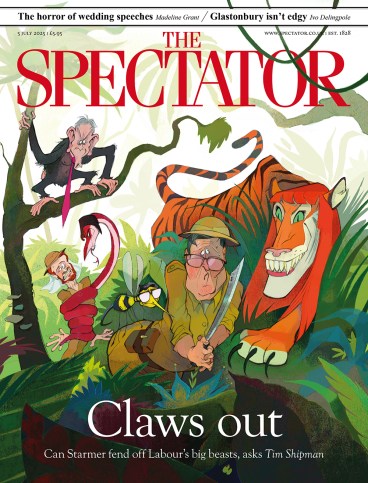
The late John Updike once wrote an amusing article about signing books. This wasn’t at some literary event with a few dozen fans queueing – no, it was vastly more daunting. An American book club had taken one of Updike’s novels for its Book of the Month and asked him to sign 25,000 copies – guaranteed sales, of course, hard to refuse. They sweetened the pill by flying him to a Caribbean island for a couple of weeks and putting him up in a beachside bungalow. There, a team of assistants brought him 100 books at a time and he would sign away, three hours in the morning and three hours in the afternoon. Updike was very droll about the discombobulating effects of signing your own name thousands upon thousands of times. It became an almost existential crisis. His signature became illegible; he began to wonder who this person ‘John Updike’ was and what relation he had to the automaton signing his name day after day.
I feel I know something of what he went through. My publishers asked me to sign 6,000 so-called tip-in pages for the hardback of my new novel, The Predicament, that would be inserted into the book for an exclusive signed edition. No Caribbean island, alas. I was ensconced in the book-strewn shambles that is my study and, pacing myself, I signed away for a few hours at a time every day over a week or so whenever I was free. But it’s very strange, signing your name hundreds of times. Bizarre things happen. You suddenly forget how your surname is spelt. Your handwriting goes completely awry. I found that sometimes I was adding a mysterious ‘s’ to ‘Boyd’. Occasionally the whole signature simply broke down halfway in a smudged squiggle of ink. I looked at signed versions of my name and instead found unsought-for pseudonyms: Willa Royal, Niki Dowd, Ulla Berndt. At one particularly fraught moment I stared at what purported to be my signature and saw a shaky Quentin Blake-style cartoon of a two-headed fishy creature with elaborate tail fins. Deep breath, leave the room, have a cup of tea. Luckily the publishers add an extra 300 pages to account for these inevitable misfires. The whole job is now done. But after 6,000 pages signed, my signature – familiar, reliable, almost part of my being – now seems fragile, mutable, an unsure prototype where once it was so certain.
I was in Aldeburgh, Suffolk, a few days ago for the world premiere of an opera – A Visit to Friends – that was opening the Aldeburgh music festival. The composer was Colin Matthews and I was the librettist – a first for me. I had been to many rehearsals in London but was unable to attend the orchestra rehearsals and dress rehearsal in the great concert hall at Snape Maltings. I hadn’t seen the set or the singers in costume, so I found myself in the afternoon, waiting for the evening’s performance, pacing the shingle beach in a state of some angst. In the end I needn’t have worried. For me, the whole occasion was a joyous, uplifting experience. Fabulous production, wonderful singers, Colin’s sensational music richly emotional and powerful. Somewhat to our astonishment, every opera critic in the land seemed to concur: a chorus of raves. But there were only two performances. This is the peril of opera commissions today – will your piece have any kind of life beyond its launch, however acclaimed? One lives in hope: ars longa, vita brevis is the consoling thought.
I am about to head off to France for the summer clutching my new prized possession – a kind of credit card that will allow me to dispose of my household waste. In our département in south-west France there are no more rubbish collections. Instead you have to get rid of and recycle your rubbish in multicoloured roadside bins – called bornes in French. The trouble is that the borne for your household waste is locked and can only be unlocked by presenting this new card, tapping it on the card-reader. Getting it was like applying for a visa. You have to prove you actually occupy the house you have always occupied – signed declarations, utility bills under three months old, etc. I’ve lived in France for more than 30 years and am confessedly ‘follement Francophile’ but there’s no doubt that La Vie en Rose can be very bureaucratic. My French bank has blocked me from having a cheque book because I can’t provide all the various documents – the justificatifs – proving that my wife, Susan, is who she claims she is. I’ve had an account at the bank for three decades, always in credit. Desolé, the staff say with a shrug. Still, I have my magic card. I am now lawfully allowed and able to dispose of my rubbish. Small victories.
William Boyd’s new novel, The Predicament, is out on 4 September.








Comments